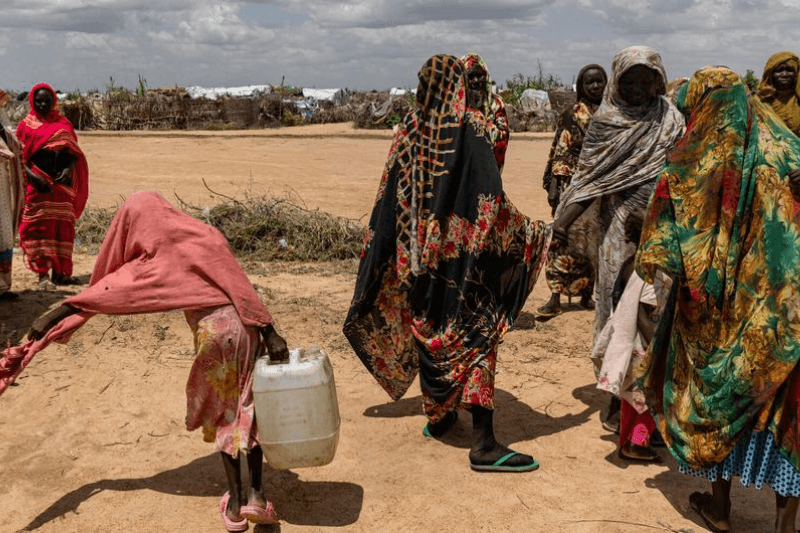Thousands of displaced children’s education hangs precariously as Egypt struggles with a huge flood of migrants escaping the terrible turmoil in Sudan. With women and children making most of the new arrivals, the number of registered Sudanese refugees in Egypt has grown almost seven-fold since the start of bloodshed in Sudan in April 2023. Particularly in relation to education, the situation has become humanitarian given approximately 748,000 refugees and asylum-seekers registered with UNHCR Egypt.
These children have exponentially increasing educational needs, yet the tools to meet them are few. Along with UN agencies and key partners, the Egyptian government is trying to create secure and protective learning environments for children from refugee backgrounds as well as from host communities. Although the Egyptian government makes great efforts to include these children into the national educational system, a recent UNICEF and World Bank analysis shows that almost 54 percent of newly arrived refugee children still lack access to schooling.
The 2024 Sudan Regional Refugee Response plan calls for $109 million in response to this catastrophe to meet demands for refugee education all over the area. Only 20 percent of this aim has therefore been reached thus far; Egypt receives just $4.3 million, which accounts for 40 percent of the country’s need.
Education Cannot Wait (ECW), UNHCR, and UNICEF underlined the significant financing shortage and launched an urgent call for more global help on a high-level mission to Egypt this week. “For girls and boys uprooted by the internal armed conflict, education is nothing less than a lifeline,” Yasmine Sherif, Executive Director of Education Cannot Wait, emphasized in stressing the critical importance of education in the life of these displaced children. It gives them the tools they need to recover and flourish once more as well as security and a feeling of normalcy among the turmoil.
Reflecting this view, UNHCR Representative to the Government of Egypt and the League of Arab States, Dr. Hanan Hamdan underlined the burden Egypt’s resources were under as a host nation. “We really need to help Egypt as a host nation more. It has showed incredible fortitude and kindness, but the growing number of displaced people calls for further global help.” She remarked.
Jeremy Hopkins, UNICEF Representative in Egypt, also underlined UNICEF’s dedication to make sure Sudanese children could start their education. Under the direction of the Egyptian government, UNICEF is developing inclusive learning environments that benefit refugee and host community children by means of projects such as the Learning Spaces and the Comprehensive Inclusion Program.
Targeting approximately 20,000 Sudanese refugee children in several governorates, including Aswan, Cairo, Giza, and Alexandria, ECW has set aside US$2 million in a First Emergency Response grant in Egypt. These monies go toward non-formal education, monetary grants, social cohesiveness with host communities, mental health and psychological support, and public school building and renovation including refugee children.
Related Posts
Beyond Egypt, ECW has dedicated US$8 million in emergency response funds to the Central Africa Republic, Chad, Ethiopia, and South Sudan to meet the pressing protection and education needs of children escaping the turmoil in Sudan.
One cannot stress the need for global unity and more financing. By the end of its 2023–2026 Strategic Plan, ECW has called to action public and private donors to mobilize an extra US$600 million to reach 20 million crisis-affected children with safe, quality education. The world’s response to this urgent appeal will determine the fate of millions of youngsters as well as, indeed, the entire area.

